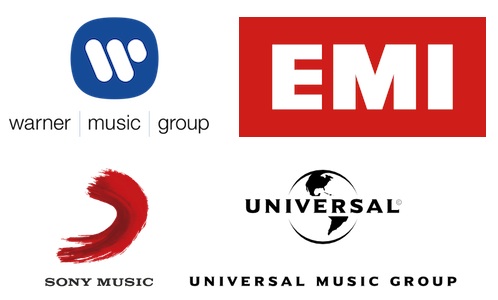Get a paper and pen. Just do it, it’ll totally be worth it. I’m about to blow your mind.

Quick – tell me 3 people you want to listen to your music that you think will be able to put it in a commercial, film, or TV promo! Even if you’ve already contacted them, write down a name with a little space beneath to complete this exercise.
Done? Great! Now write down 3 things you said to persuade each person to listen to your music (they can all be similar or the same if you do a lot of copy/paste).
Easy, right?
Alright, now for each person list 3 things about them that have nothing to do with their job, or music.
Hmmm…alright, take some more time and think about it…times up!
Now, as fast as you can, write down 3 things you can do for that person based on their needs or wants!
If you can come up with 1 thing for that last one, I’ll give you props. But only if it isn’t ridiculous (like “give them a million dollars” or “cut them in on license fees they secure for me” – because that’s payola, and payola is illegal…unless you’re Clear Channel).
The above exercise should prove to you that your emails suck. “Me, me, me.” That’s what you write about. “Listen to this! Check that out! I’d LOVE for you to put my song in a commercial!”

Great. I’m sure there aren’t 100,000 other people out there sending the same thing.
However, if you’re far enough along to know who to contact and actually have gotten some contact info, you’re STILL ahead of the game, as sad as it is. But you need to know something and you need to PRACTICE and GET BETTER at it as soon as you can:
The music business, and life in general, doesn’t work the way you think it does.
You cannot just sell yourself cold. It’s a waste of time. If you don’t have a good relationship with someone, it’s really tough to break through and make a connection. Especially one strong enough where they have confidence and enough trust in you and your music that they’ll give it a real shot.
How many emails have you received from someone or some entity that you didn’t know or agree to take part in? How did it make you feel? Did you read it carefully and take action doing what they ask? No?! What a surprise!
Here’s a gigantic tip:
Find a genuine connection to EVERY person you want to listen to your music before you ask them to listen to it.

That is HUGE takeaway. Huge. You should read it again, think about it, write any immediate ideas that come to mind, and then read it again.
Is it coming full circle yet? Do you get it?
Music supervisors are inundated with requests from people they don’t know and therefore don’t care about every day. They are flooded with emails like the ones you’ll find here. What makes you different?
Do you think changing your wording or coming up with a better email subject line makes you better? Wrong.
What most music supervisors will tell you is that they want a ‘filter,’ someone or some entity that they know well who they can reach out to for their music needs. What you need is to either discover one of those filters and partner up with them, or look for pre-existing relationships that act as that filter for you.
Whatever you do, don’t write another crappy email.
No one cares about the 8-word catch-phrase that sums up your music perfectly. Your album art is NOT good enough to get someone’s attention. Your 15MB attachment consisting of your amateur band photo, 1 sheet, and latest ‘single’ from 2 years ago? You guessed it. It couldn’t penetrate chocolate pudding.
Don’t get mad or frustrated – get smart. CHANGE your approach. Make yourself relevant to the person you’re contacting. Emphasize key elements that will filter you out from the crowds of morons or partner up with someone who can. The intelligent independent musician can find ways to make themselves valuable IMMEDIATELY. Sure, it takes work. Yes, you have to do more than copy and paste the same form email to 200 people. You’re better of sending 10 effective emails in an hour than 200 bogus ones.
Shape up. Get relevant, get genuine, and start focusing on the right things. You’ll find it goes a lot further than the lame attempts made by most everyone trying to get their music licensed.
If you’re not sure where to start when reaching out to music supervisors, you should subscribe to my free newsletter where you’ll get an 8-part course to help you do just that.





